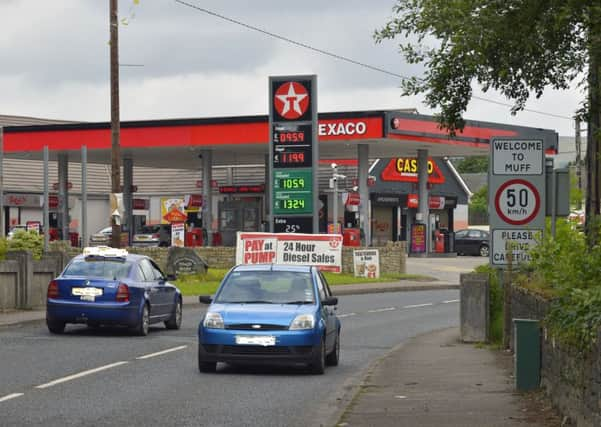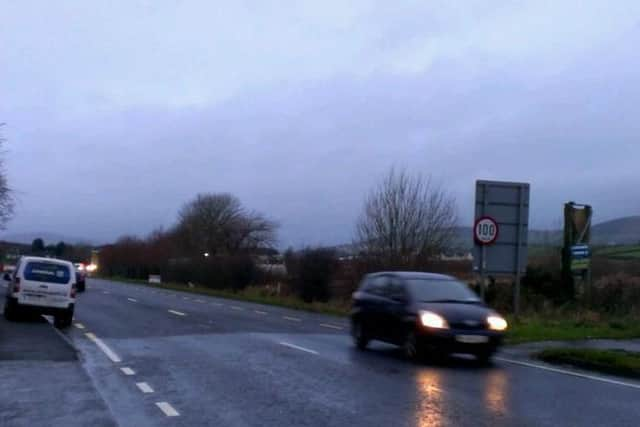Car lease dismay for cross-border workers


Employees from the Western Trust say they are now trapped in a nightmare because their cars are leased from northern companies via a Western Health Trust leasing scheme and yet they are being told they must register them and pay Vehicle Registration Tax in the south.
A total of 65 Western Trust cross-border workers are affected by the issue, and the majority of these staff have now launched individual appeals.
Advertisement
Hide AdAdvertisement
Hide AdThe Western Health and Social Trust has confirmed to the Journal that overall there are currently 615 staff from both sides of the border availing of the Car Leasing Scheme, while new applications from staff resident in the Republic have been temporarily suspended since October 2014, when the issue arose.


One of the 65 Republic of Ireland residents affected said: “All this has made life very difficult for the lot of us. The kind of jobs we are doing, we need access to transport- health care, social work, a lot of the staff are nurses and they have to take equipment to people in the community. They are having to go out and take blood tests, while social workers are working with groups and families in the community, and transfer of children is part of their work.
“We are feeling very aggrieved that other people we sit beside in work can lease their cars no problem, but because we live down the road we are being put through immense stress and hassle, and it is pushing some of us to the far edge. It’s ludicrous.”
One worker said: “This car leasing scheme has been going on for years and there has never been an issue, but for whatever reason the Revenue have said it is an issue now.
Advertisement
Hide AdAdvertisement
Hide Ad“There used to be an Exemption Certificate. The paying of VRT didn’t apply to anyone who leased the car in the north and they won’t grant this to us. They are saying that doesn’t exist anymore.


“We are now in the appeals process. There are 65 of us have to do this individually and there’s three stages. One person has got as far as the Appeals Commissioners and was questioned in the stand in Dublin. It just sounds horrific.”
The workers stressed that Trust staff pay for the car leasing and have raised concerns over the support they are receiving from health bosses.
They have also expressed serious concerns about their treatment by custom officers when stopped at checkpoints.
Advertisement
Hide AdAdvertisement
Hide AdA spokeswoman for Revenue said they were precluded from commenting on the tax affairs of particular individuals and that it would be “inappropriate” to comment on an ongoing appeal.
She added: “In general terms, subject to certain conditions, restrictions and limitations, a qualifying, unregistered vehicle, i.e. a vehicle which is validly registered abroad and which is owned by or registered in the name of a non-resident person, may be granted temporary exemption from the requirement to be registered in the State.
“This relief normally applies for a period not exceeding 12 months and in such cases there is no requirement to make a formal application.
“Where a formal application is required, evidence of eligibility, as necessary, must be produced. Application can be made at any Local Revenue Office.”
Advertisement
Hide AdAdvertisement
Hide AdThe spokeswoman added: “Ordinarily, a State Resident is not permitted to drive an unregistered vehicle in the State. There are limited circumstances in which it is permissible.”
A spokesman for the Western Trust said that in 2014 they were alerted by the Republic’s Revenue
Commissioners that leased cars used by its staff resident in the Republic, must be registered in the south and are subject to VRT.
A Trust spokesman said: “The Trust does not own the leased cars and the leasing companies do not permit their vehicles to be registered in ROI.
Advertisement
Hide AdAdvertisement
Hide Ad“The staff concerned supported by Trust senior officers have progressed applications for the vehicles to be temporarily exempt from the requirement to register the vehicles in ROI, and these were unsuccessful. A test case has since been progressed to appeal stage with the Appeal Commissioners and a decision is awaited.
The Trust has actively supported the affected staff by keeping them up to date with developments and having direct contact with the ROI Revenue Commissioners.”
Foyle MLA Mark H Durkan has expressed grave concerns over the issues now facing the Western Trust employees affected.
Mr Durkan, who has raised the issue with the Irish Government, said:
Advertisement
Hide AdAdvertisement
Hide Ad“This is something that is obviously causing huge concern to a large number of health care professionals.
“We have seen a number of cases in the past number of years where the difficulties around Vehicle Registration Tax and the interpretation of exemptions, and this in my opinion has proved extremely challenging for the Department of Finance in Dublin to resolve.
Mr. Durkan also said that it was important to remember who this issue was affecting.
“We are talking about health care workers here and they need their cars to carry out the vital work they do and I think that is certainly something that should be taken into consideration by those making the decisions here.
Advertisement
Hide AdAdvertisement
Hide Ad“This issue also highlights the ridiculousness of having a border on this island and in particular, the practical difficulties it causes people on a daily basis, particularly those
living and working in the border region.”